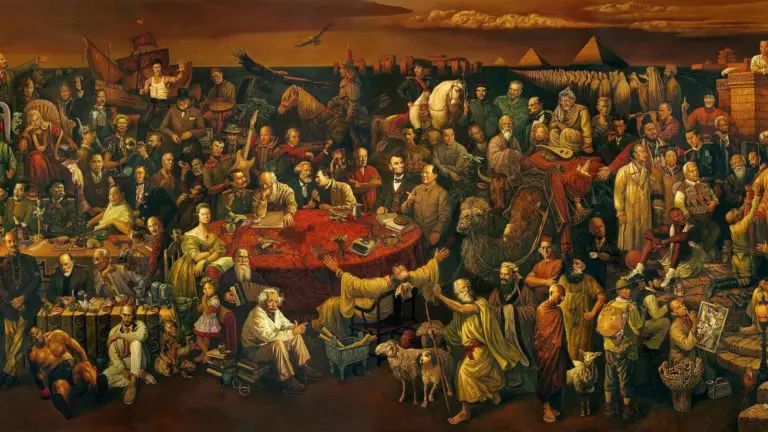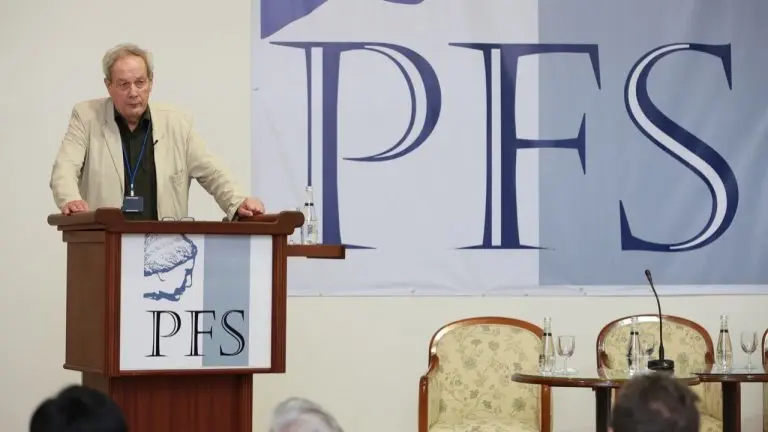It was only when I first came to Europe, as a sixteen year-old in the summer of 2003, that I understood something had gone deeply wrong in America. We had just ‘won’ the war in Iraq, but disturbing images flickering on my Spanish host-family’s TV screen told otherwise. An unexpected corollary to Europe’s liberal attitudes toward nudity on television was, I found out, that the news outlets didn’t censor images of bleeding American soldiers. European news showed the maimed and the dying. And yet the family I stayed with had—at least initially—favorable views of George W. Bush’s War on Terror. The Spanish Prime Minister at the time, Jose Maria Aznar, had made Spain part of the ‘coalition of the willing,’ sent to liberate Iraq. Until Aznar was felled—arguably due more to the March 2003 Atocha terrorist attacks than to his socialist opponent’s political acumen—it appeared that Spanish and American conservatism were largely congruous. That is, the distinctly neoconservative Wilsonian agenda—what we might now call a ‘globalist’ agenda to promote liberty abroad and deregulation at home—was largely naturalized and adapted by segments of European conservatism.
With the fight to find a Republican nominee for 2024 already underway and European conservatives looking, in varying degrees, to America for at least some of their political cues, it behooves us to listen as much to America’s dissident Right as to its center-right establishment. All the more so if the nationalist-populist insurgency is defeated or effectively tamed and co-opted by Conservatism INC. What wisdom, then, can America’s so-called New Right impart to conservatives across the pond? The message, I would argue, is quite simple: grassroots American conservatism is no longer the party of liberty—the party, if you will, of classical liberalism; it is now the party of limits. This is another way of saying that America’s dissident Right is actually a party of reality and realpolitik: far more Bismarck than Bush.
As Patrick Deneen, Yoram Hazony, Rusty Reno and a host of others have pointed out, postwar America’s political culture has increasingly relied on freedom over restraint, on liberty over limits. This liberation was both social (lifestyle liberalism) and economic (free trade and globalization). In hindsight, the ‘go-go eighties’ paradox of a conservative presidency under Reagan, juxtaposed with the drug culture and gaudy consumption of the hippies-turned-yuppies, was not a paradox at all: beneath an ultimately thin veneer of social-conservatism and evangelical-right rhetoric, cultural and economic deregulation went hand-in-hand.
What makes the American New Right different, then, is that in place of the neoliberal left-right consensus on ‘liberty,’ it consciously, even conspicuously, imposes limits. These guardrails are spiritual and cultural (in support of patriotism and the traditional family, and against divorce, gay marriage, and abortion) and also economic and geo-strategic (against the unfettered ‘free’ trade that ships American jobs to mercantilist China and the hubristic notions that Chinese communism or radical Islamic terrorism could be tamed by free-trade and democratic nation-building). By contrast, as Batya Ungar-Sargon and Zach Goldberg show (in recent pieces for Compact and the Manhattan Institute respectively), the ultra-liberal, ultra-woke and highly-educated whites within the Democratic Party are at odds with the party’s minority and non-college-educated demographic, who prioritize bread-and-butter issues over virtue signaling. Which leads to the question: Why is it that the party’s highly-credentialed and mostly white voting bloc is so much more bothered by the schoolboy denied the ‘right’ to use the girls’ bathroom than by the opioid-addicted unemployed factory worker in the rust belt?
Elite liberals rage over the culture war issues because they sense intuitively that the great postwar political compact, upon which America has operated for the past half-century or more, is coming to an end. The globalized technocratic and managerial elite that runs the West today was always more or less content to give capital a free hand as long as they got cultural liberation in turn. What makes culture warriors like Governor DeSantis, or, for that matter, Senators Hawley, Rubio, or the newly-minted America-firster J.D. Vance, so upsetting to the Left, as well as to the classical liberal Right, is that for the first time in a long time cultural liberals are hearing the word ‘no.’ The new generation, in other words, is redefining the operational paradigm of right-wing politics from one of endless liberty to enlightened limits. In reality, this much-needed shift in America’s political culture is merely a pivot from anarchic freedom to anchored freedom. Only within a context in which American peoplehood is clearly demarcated can any meaningful debate about American nationalism and the national interest properly occur; only when the complementarity and essential distinctions between man and woman are clearly delineated can the good of each be truly considered; and only in a world in which the limits of American military might are recognized can a serious debate about the threats from China and Russia be soberly assessed.
The American Left knows that the culture of limitlessness promoted by progressives and tolerated by classical liberalism in the name of a specious ‘pluralism’—of ill-defined liberty—is bread and circuses. It is the distracting hand, if you will, that allows the ‘invisible hand’ of globalization to remain invisible. Drugs and sex—and the ceaseless broadening of the acceptable borders of these—are the sugarcoating to the bitter pill of globalism. The lifestyle liberalism enshrined in our unwritten boomer constitution is intimately intertwined with economic liberalism. In this sense, the Left was, and is, right: the personal is political.
Governor DeSantis, former President Trump, and others on the nascent New Right understand that to take back the boardroom they must also take back the bedroom. Viewed in this light, the limits imposed on personhood and sexuality—above all by God and the orthodox Judeo-Christian outlook affirmed in Genesis—are inextricably linked to limiting capital flow to rogue China or migrant caravans across our southern border. In an economy without limits, the borders of everything, from nation to family—even biological sex—and all that lies between, wash away.
In a country that’s been binge-drinking at the font of liberty for a half-century, the American New Right is betting that the hangover is setting in; instead of the hair of the dog, the New Right is doubling down on sobriety. Instead of liberty, it is betting on limits. As any inveterate boozehound will tell you, sometimes it’s tough to say ‘no,’ let alone to sell it. To its credit, the New Right is trying. It is saying ‘no’ to the endless permutations of lifestyle liberalism, alongside the interminable dragon-slaying of liberal interventionism abroad; ‘no’ to the unchecked in-flow of migrants and out-flow of capital; and it is saying all this against an ideology from which the globalist status quo profits immensely.
The American dissident Right’s collective ‘no’ in the face of gale-force establishment headwinds is the same hard sell that the European Right must make to its own electorate: limits first, then liberty. In that order. The foreign-policy realism of Viktor Orban is one such voice, and the migrant-skeptic nationalism of Spain’s VOX party and Giorgia Meloni’s Fratelli d’Italia is another, but more are needed. In some self-professed conservative European circles, I still hear the familiar sounds of 2003. But for the West to survive as a distinct political and cultural entity, the clarion call of limits must overwhelm the siren song of liberty.






